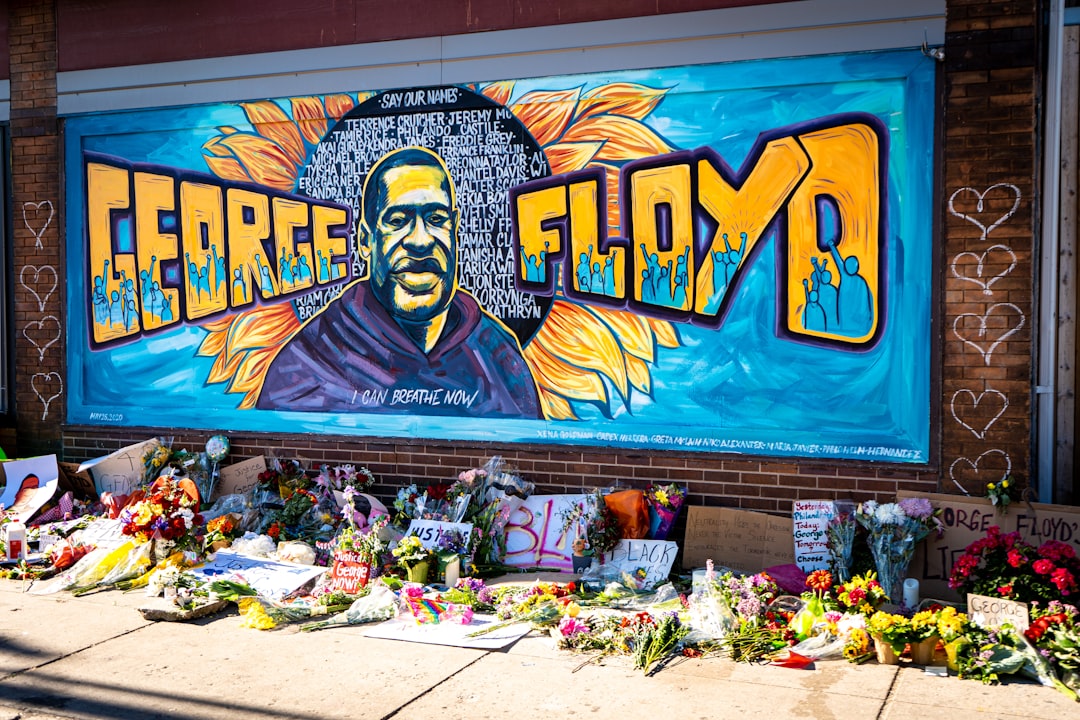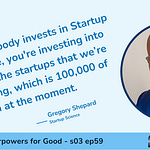Devin: What do you see as your superpower?
Heather: One of my unique talents, I would say, is my ability to connect disparate ideas together. I’ve always said that my work operates at the intersection of my—my curiosity is really at the intersection of people, ideas and places.
“About three years ago, all of us were sheltering in place due to the global pandemic. During that time, we were shocked at what was a public lynching of an African-American man [George Floyd] in Minnesota at the hands of a Minneapolis police officer whose name is Derek Chauvin,” says Giving Gap CEO Heather Infantry of the context for the nonprofit’s founding.
Despite the extraordinary challenges of 2020, Giving Gap was born. “The human spirit is eternally hopeful and optimistic and with intention to do good in the most dire of situations,” Heather says. “It was that feeling that prompted so many of us to want to do something. We saw philanthropic dollars going to organizations. We saw a call to support black businesses. We saw community members reaching out to neighbors and volunteering—all these different kinds of ways. It is out of that energy and urgency that Giving Gap was born.
Co-Founder Christina Lewis was sheltering in place in New York, watching 2020 unfold.
Heather recounts:
As a serial entrepreneur, she sprung into action and thought, okay, “I've always been in this nonprofit philanthropic space. What can I do from where I sit in this community?”
So she rallied her colleagues, her peers, her friends, her coworkers–anyone that she knew–and implored them to support Black nonprofit organizations very much in the same way that folks were asking to support Black businesses.
Today, Heather says that of the $450 billion that Americans give to charity each year, only a tiny fraction ends up in Black organizations. Giving Gap works to change that.
“We’re finding that a lot of Black organizations are founded by folks who, at some point, grappled with the same issues that their organization was created to address,” she says. “So when you think about that kind of expertise, that lived experience brings to solutions that you’re creating and think as an extension of that, we’re seeing a very human-centered way in which black founders, black leaders, black organizations approach community work.”
In this work, Heather deploys her superpower, a finely honed ability to connect people, ideas and places.
AI Podcast Summary
Devin Thorpe interviews Heather, the CEO of The Giving Gap, a nonprofit that profiles Black-founded nonprofits to help them close the funding gap.
Black-founded nonprofits receive less funding than white-founded nonprofits, and The Giving Gap aims to address this disparity.
The Giving Gap was inspired by the public lynching of a Black man in Minnesota and the larger social and economic disparities revealed by the pandemic.
The organization has created a website where donors can discover and support Black organizations doing good work in their communities.
The goal of The Giving Gap is to mobilize dollars to close the gap in giving and provide resources to Black nonprofits.
One strength of Black-led nonprofits is their ability to do more with less and their tendency to collaborate and innovate.
Black founders and leaders bring unique lived experiences and a human-centered approach to community work.
The Giving Gap aims to challenge the traditional definition of a high-performing nonprofit and highlight the attributes and characteristics unique to Black organizations.
Heather’s superpower is her ability to connect disparate ideas, people, and places, which she uses to facilitate conversations, foster relationships, and generate new ideas.
Some advice for making connections is to be curious, open, and ask questions, share parts of yourself, listen authentically, and connect the dots between what you hear and your own experiences and interests.
How to Develop Connecting People, Ideas and Places As a Superpower
Heather sees relationship building as a central part of her superpower. She cited a longitudinal Harvard study on well-being that began in 1939 and continues today.
After following these people and their partners and their coworkers and their offspring, reflecting on what it means to have a good quality of life, the single greatest factor is our relationships. It doesn't matter what you rank socially, economically, your title, or how much money is in your bank. At the end of the day, the marker of a good life is defined by the quality of those relationships.
Working at this intersection of people, ideas and places, Heather collaborated with a local leader to reenvision a local highway in Atlanta.
In doing that work, we would bring folks to reimagine different things. We did an ideas competition in reimagining our 285 highway, which is a highway system that circles the city. The point of that was just to get people to look at and notice their environment and to demand other ways in which it could be used.
We see a highway there, and we think, well, that's it, it's permanent. Nothing else can be done. But that's not actually the case.
The same way that the Beltline was this abandoned rail line that now has become this massive transit corridor that's connecting cities with trails. As a result, commercial development has sprung all through it.
I think that's one of the greatest lessons that I've learned that further deepens my superpower of connecting people, because it's all about just noticing things, being curious and wondering what are other ways in which this could be better, be more enjoyable, give us more time with each other.
Heather has some advice to help you develop this superpower:
Be curious
Be open
Ask questions
Share parts of yourself
She suggests remembering in the context of a formal meeting with an agenda that there are things we can “peel away” that you just can’t plan. They reveal themselves in the moment—if you’re open to them.
The last step, she says, is to connect the dots. “Connect what you Hear to something about yourself. Offer to help. Make an introduction. Pick up a book because of something that you heard that you want to know more information,” she says.
By following her example and advice, you can make connecting people, ideas and places a skill that enables you to be more effective. With practice, it could become a superpower that empowers you to do more good in the world.
Guest-Provided Profile
Heather Infantry (she/her):
CEO, Giving Gap
About Giving Gap: Giving Gap is an online platform of Black-founded nonprofits in the US whose mission is to advance racial equity in giving and mobilize positive action for Black lives by connecting people to causes they care about.
Website: givinggap.org
Twitter Handle: @givinggap
Company Facebook Page: fb.com/closethegivinggap
Biographical Information: In addition to serving as CEO for Giving Gap, Heather Infantry is also the Founder of the Atlanta Taskforce for Philanthropic Reparations, created in response to her public call out of the Community Foundation for Greater Atlanta’s exclusion of Black arts organizations in COVID relief funding. She successfully advocated for an unprecedented contribution of $1.4M to 33 Black organizations. Prior to this position, Heather served as the Managing Director for the TransFormation Alliance, a collective advancing equitable transit-oriented development as a pathway to Black prosperity. She was also the founding Executive Director of Generator, “a retro-futurist-social-house” on Atlanta’s Beltline whose mission is to bring people together to generate ideas that shape the future of cities. Throughout her career, Heather has fostered an ongoing curiosity for people, places and ideas at the intersection of culture and equity. Heather holds a BA in theater from Georgia State University and an MBA in Nonprofit Management from Trinity University.
Linkedin: linkedin.com/in/heatherinfantry
Instagram Handle: @closethegivinggap
On July 19, 2023, we’ll hold the first-ever SuperCrowdHour with an extraordinary panel I’ll moderate, discussing “The Power of the Purpose Round.” The panel will include Parker Clay CEO Ian Bentley, DealMaker CEO Rebecca Kacaba and Renew VC founder Mark Hubbard. You’re entitled to a 50 percent discount as a Superpowers for Good reader! Join us for just $5 when you use the discount code SUPERCROWD. Register here.















